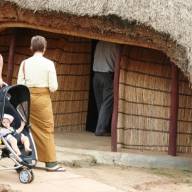When you choose to travel with us, please bear in mind the following:
Ugandan People and Culture
Familiarize yourself about Uganda by reading guidebooks and other publications and travel articles that detail the local history, culture and customs of the people of Uganda. It is equally important for you to learn a few common phrases of the local languages i.e. hello, please! Thank you, Good day, etc
Be sensitive to the local culture by wearing clothing that is accepted, and always observe local customs where deemed important especially at some cultural sites in the country. Note: “Ugandan women rarely wear pants but rather skirts and dresses that cover the knees. Blouses and dresses usually have sleeves. The kitenge is a very useful traditional dress because it is modest and comfortable when squatting, bending, stooping or sitting”
Similarly, beware of people’s sensitivity to being photographed; always ask first. Please do not brag around or display wealth like jewellery, cameras before the locals
Beware of the difference in cultural values between you, other visitors and those of the local Ugandans. This may include different concepts of time, personal space, communication etc. The tourism fraternity and the rural people in Uganda however observe time and are free to interact with in any way.
Gifts and Tipping
In case one wants to bring gifts for local people, pack clothes and pens, books and give them direct to community elders or group leaders, or through your guide so that you don't encourage begging from children. However, tips to guides, drivers and restaurant staff should be given directly in terms of cash or any material.
Local tourist amenities and attractions
Learn about critical ecosystems and always feel free to ask your guide about their established environmental guidelines for limiting and improving tourist impact on the environment and local culture. General guidelines involve staying on trails i.e. no off-track driving; maintaining set distances away from wildlife
Demonstrate responsible behavior to other travelers who are less informed than you are by acting as an example by using local transportation, Uganda guides or dealing directly with local tour and travel providers, inns, restaurants and local Ugandan markets to benefit the local economy.
Responsibility as an eco traveller
Do not buy any animal and plant products while travelling or at the site, or remove any of the latter from nature and don’t encourage your guide to hunt endangered or threatened species or harvest rare plants for your consumption.
Endeavour to participate in natural and cultural conservation or preservation projects and learn how you can minimize impact on the ecosystem as well as how you can contribute to the protection of these ecosystems. Do this by attending lectures, community gatherings and pre-activity mini briefings.
Lastly, return home with increased awareness and concern for environmental and social issues in Uganda and continue to behave in an environmentally conscious way.






